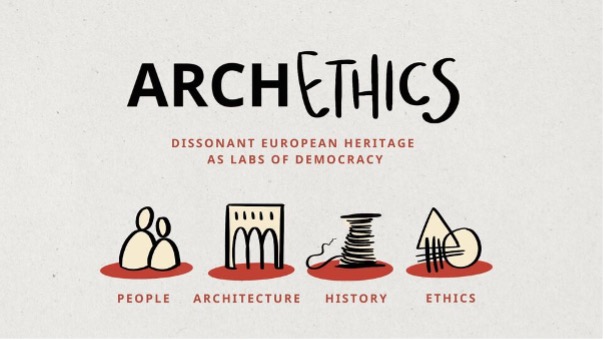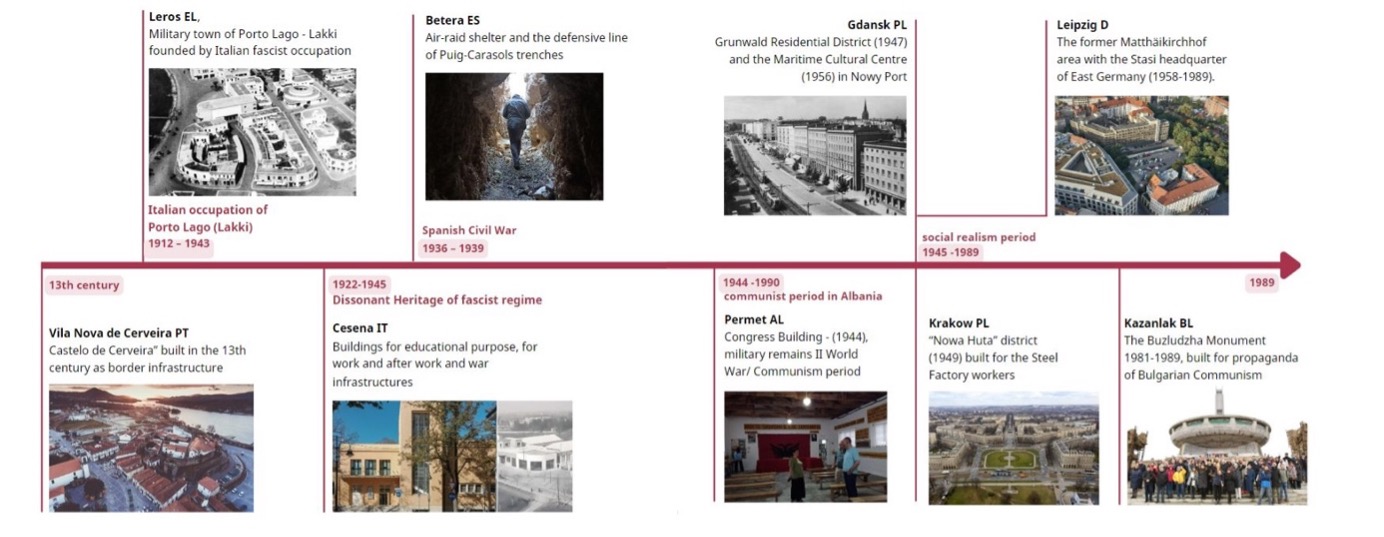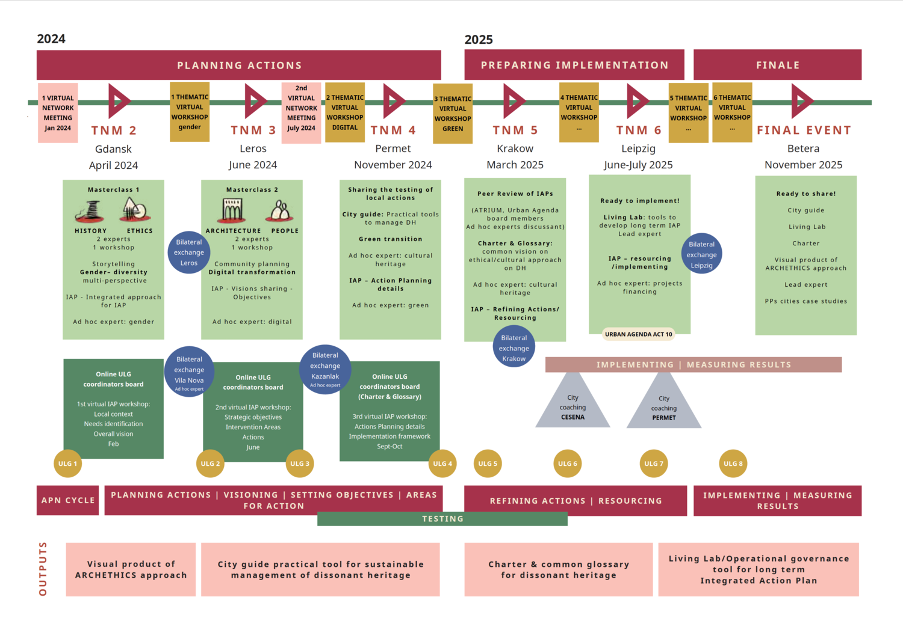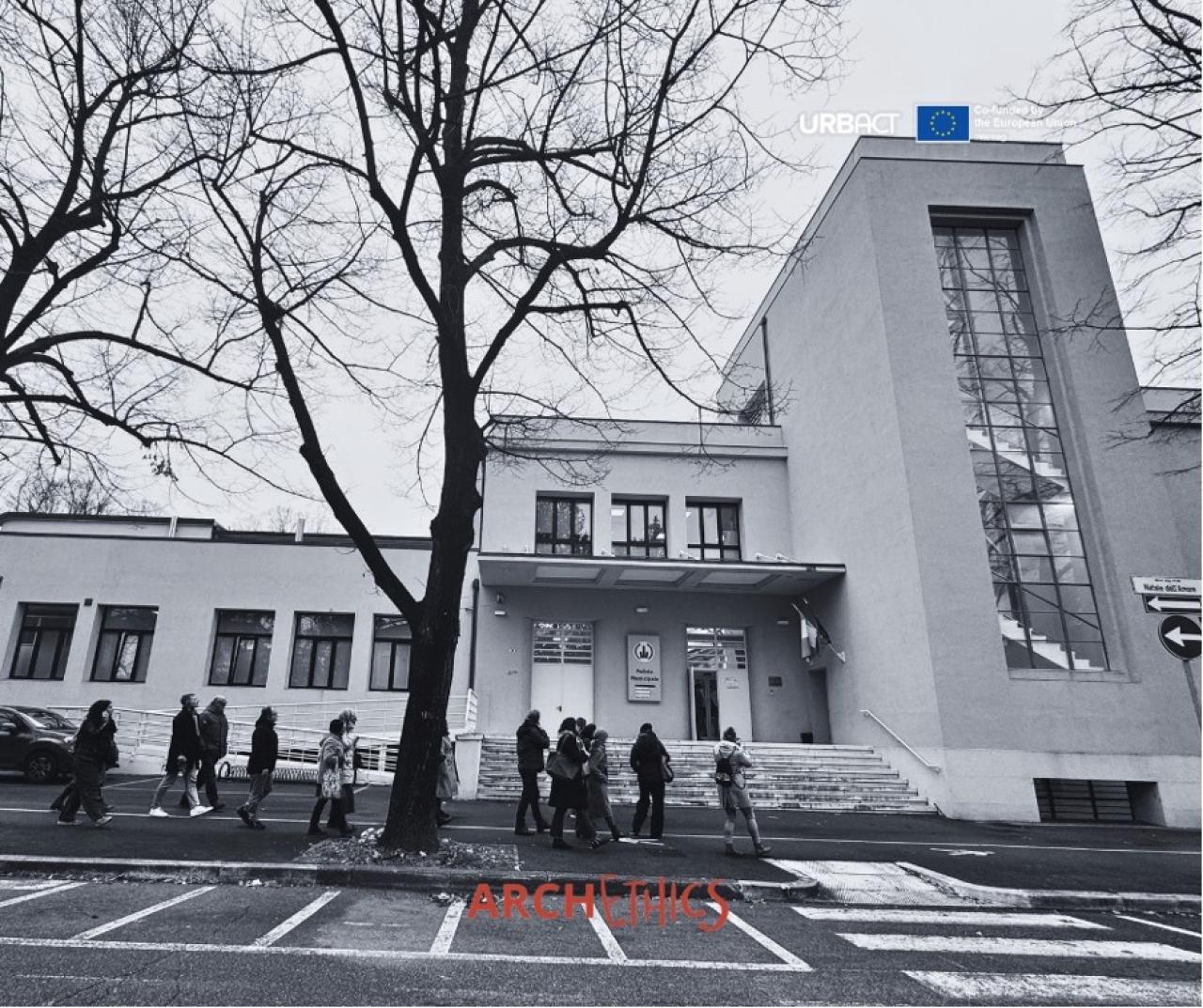This week (6-9 June 2024) we will find out the results of the 2024 European elections. Every five years EU citizens perform an important civic duty by voting in the European elections. It might seem like a long-standing tradition, but European democracy is still quite young: the first European election took place in 1974.
Understanding our shared history, and the origins of our democratic systems, is important for the future of democracy, but this sometimes involves facing hard truths, inter-communal conflict or trauma. Follow nine European cities as they investigate ‘dissonant cultural heritage’ urban spaces and monuments to see how they can be harnessed to reinforce democratic values and solidarity.
Let’s get to know the ARCHETHICS Network
Europe’s history has at times a controversial and complex heritage. We can see it in physical elements (‘dissonant heritage sites’) such as architecture, neighbourhoods, monuments, and urban public spaces, along with the historical and political values these elements represent. Many European cities have such sites, but they are neglected or abandoned.
The ARCHETHICS Action Planning Network (2023-2025) examines the concept of ‘dissonant heritage’, particularly in the 20th century. It is one of 30 URBACT Action Planning Networks set up across four thematic areas: participative governance, social cohesion, urban planning and local development.
The network explores the concept across four dimensions:
• Architecture
• People
• History
• Ethics
A novel storytelling approach is used to explore ‘History’ and ‘Ethics’. These storylines focus on important common stories and official histories, through the lens of a multi-perspective, gender and diverse approach. The ‘Architecture’ and ‘People’ dimensions adopt a community planning and participation approach.

Seeing dissonant heritage firsthand
Led by the Municipality of Cesena (IT), network partners share a common challenge: past experiences with anti-democratic, totalitarian regimes and/or contentious borders. The inter-partner learning component is a defining feature of all URBACT Action Planning Networks. In ARCHETHICS, actions are about involving citizens in multi-perspective understandings of the past and new possibilities for the future of democracy in European cities. This involves looking at concrete examples and historical periods in the partner cities.
The partners cities of Krakow (PL), Gdansk (PL), Kazanlak (BG) and Permet (AL) focus on the social realism period by putting the spotlight on case studies about work neighbourhoods, cultural civic centres, propaganda monuments and buildings, symbolic heritages representing the communist and socialist ideologies. The city of Leipzig (DE) concentrates its research on the former Matthäikirchhof area, the urban area that belonged to Stasi (secret police) during the East Germany period.
The cities of Cesena (IT) and Leros (EL) focus on dissonant heritage sites built during the fascist period. Cesena is willing to study some educational and industrial buildings and war infrastructures, while Leros focuses on the military town of Portolago and iconic buildings. Betera (ES) proposes to analyse an air-raid shelter and trenches belonging to the Spanish Civil War. Vilanova de Cerveira (PT) chose the Cerveira Castle, a border infrastructure, positioned in the city centre, now completely abandoned.
ARCHETHICS cities had the chance to visit fascist regime heritage sites (1922-1945) in a tour guided by the University of Bologna.

Image from quarterly report of the ARCHETHICS URBACT Action Planning Network.
Creating labs for democracy
Through the four dimensions mentioned above, ARCHETHICS is activating urban communities to boost their interest in their dissonant heritage and foster a reflection on how to transform those heritages into gathering places for locals and visitors, promoting critical tourism. These spaces become ‘urban laboratories’ for educational and other community purposes.
This endeavour also converges with EU-level initiatives, most notably the work of the Action 10 of the Partnership on Culture and Cultural Heritage of the Urban Agenda for the EU and ATRIUM, the Cultural route of the Council of Europe on Architecture of Totalitarian Regimes of the 20th Century in Europe’s Urban Memory. It has also been important to develop tool practical kits and excersises for engaging citizens in discussions around dissonant heritage and the regeneration of these sites in the future.
Looking ahead: a baseline for European democracy and civic participation
After conducting interviews with experts, collecting key testimonials across the partner cities, ARCHETHICS released a Baseline Study in early 2024. Links to the Baseline Study and Network Roadmap can be found in this article and serve to frame and guide partner cities’ exchanges and learning at Network and local level.

To conclude, it is worth noting that ARCHETHICS is the first URBACT Network dealing with dissonant heritage. It paves the way with standards and guidelines for approaching complex heritage and exploring new opportunities for society, urban and regional development, cultural tourism and education.
Want to know more about ARCHETHICS and other URBACT Networks promoting social cohesion across Europe’s cities and regions? Read up on communicating about dissonance and ARCHETHICS quarterly updates.
Check out the URBACT Knowledge Hub to learn more from our experts.
Originally submitted by Ileana Toscano on 07/12/2023.


